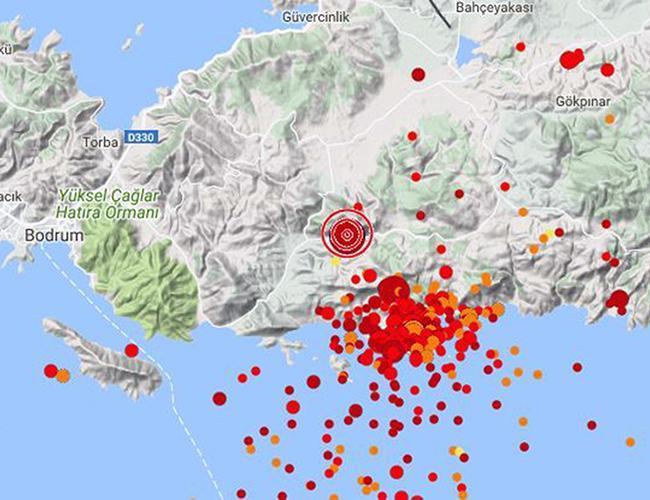
The Aegean resort of Bodrum slid a total of 26 centimeters underwater following a 6.6.-magnitude earthquake in July, an examination carried out by a group of scientists has revealed.
According to a Dec. 8 report by daily Habertürk, some 20 GPS stations had been set up to monitor the horizontal and vertical movements of earthquakes in the region and determine their breaking points, which also monitored the 6.6-magnitude earthquake on July 21.
A total of 11 scientists from seven universities across the country determined the effect and movements of the earthquake as a part of the research team.
Dokuz Eylül University’s Earthquake Research Center head Professor Hasan Sözbilir said the implementation marked a first for the country, adding that the team determined sliding of over 20 centimeters, which would normally happen in 50 years but took only 11 seconds due to the strength of the quake.
“It was revealed that the seafloor was torn over a 65 kilometer-long and 25-kilometer wide zone in an area off the southern coast of Bodrum Kara Ada and [Greek] Kos island. A block moved away from another. A sliding that would normally take 50 years happened in 11 seconds with the 6.6-magnitude earthquake. We determined that this region slid 26 centimeters,” Sözbilir said.
“The refraction occurred in three fault parts. A 13-centimeter sliding in the 25-kilometer west fault, a 26-centimeter sliding in the 16-kilometer middle fault and a five-centimeter sliding in the 18-kilometer east fault were calculated. For that reason, local GPS stations should be set up and monitored constantly around Muğla, Aydın, Denizli, Manisa, İzmir and Balıkesir,” he added.
The GPS device used during the examination is an advance from navigation devices used in vehicles, which millimetrically measures movements on the surface via satellite connections and conveys them to the computer. Accordingly, scientists are able to determine slidings and refractions after reviewing data coming from the GPS device.
Authorities had previously stated that the Greek island of Kos had been affected by the quake more than Turkey and large-scale damage had occurred on the island where two people, including a Turkish citizen, were killed.